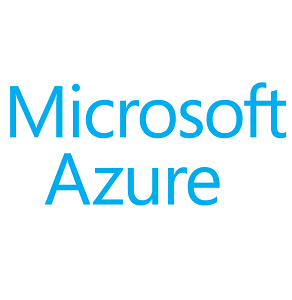
Tijdens de Microsoft Azure DevOps Engineer AZ-400 cursus leren curisten te plannen voor DevOps, bronbeheer gebruiken, Git schalen voor een onderneming, artefacten consolideren, een strategie voor afhankelijkheidsbeheer ontwerpen, geheimen beheren, continue integratie implementeren, een strategie voor het bouwen van containers implementeren, een releasestrategie ontwerpen, een release opzetten managementworkflow, implementeer een implementatiepatroon en optimaliseer feedbackmechanismen.
Lessons
Transformation Planning
Project Selection
Team Structures
Migrating to Azure DevOps
Lab : Agile Planning and Portfolio Management with Azure Boards
After completing this module, students will be able to:
Plan for the transformation with shared goals and timelines
Select a project and identify project metrics and KPIs
Create a team and agile organizational structure
Design a tool integration strategy
Design a license management strategy (e.g. VSTS users)
Design a strategy for end-to-end traceability from work items to working software
Design an authentication and access strategy
Design a strategy for integrating on-premises and cloud resources
Lessons
What is Source Control
Benefits of Source Control
Types of Source Control Systems
Introduction to Azure Repos
Introduction to GitHub
Migrating from Team Foundation Version Control (TFVC) to Git in Azure Repos
Authenticating to Git in Azure Repos
Lab : Version Controlling with Git
After completing this module, students will be able to:
Describe the benefits of using Source Control
Describe Azure Repos and GitHub
Migrate from TFVC to Git
Lessons
How to Structure your Git Repo
Git Branching Workflows
Collaborating with Pull Requests in Azure Repos
Why care about GitHooks
Fostering Inner Source
Lab : Code Review with Pull Requests
After completing this module, students will be able to:
Explain how to structure Git repos
Describe Git branching workflows
Leverage pull requests for collaboration and code reviews
Leverage Git hooks for automation
Use git to foster inner source across the organization
Lessons
Packaging Dependencies
Package Management
Migrating and Consolidating Artifacts
Lab : Updating Packages
After completing this module, students will be able to:
Recommend artifact management tools and practices
Abstract common packages to enable sharing and reuse
Migrate and consolidate artifacts
Migrate and integrate source control measures
Lessons
The concept of pipelines in DevOps
Azure Pipelines
Evaluate use of Hosted vs Private Agents
Agent Pools
Pipelines and Concurrency
Azure DevOps and Open Source Projects (Public Projects)
Azure Pipelines YAML vs Visual Designer
Continuous Integration Overview
Implementing a Build Strategy
Integration with Azure Pipelines
Integrate External Source Control with Azure Pipelines
Set Up Private Agents
Analyze and Integrate Docker Multi-Stage Builds
Lab : Enabling Continuous Integration with Azure Pipelines
Lab : Integrating External Source Control with Azure Pipelines
Lab : Integrate Jenkins with Azure Pipelines
Lab : Deploying a Multi-Container Application
After completing this module, students will be able to:
Implement and manage build infrastructure
Explain why continuous integration matters
Implement continuous integration using Azure DevOps
Lessons
Introduction to Security
Implement secure and compliant development process
Rethinking application config data
Manage secrets, tokens, and certificates
Implement tools for managing security and compliance in a pipeline
Lab : Integrating Azure Key Vault with Azure DevOps
After completing this module, students will be able to:
Manage application config and secrets
Lessons
Managing Code Quality
Managing Security Policies
Lab : Managing Technical Debt with Azure DevOps and SonarCloud
After completing this module, students will be able to:
Manage code quality including: technical debt SonarCloud, and other tooling solutions
Manage security policies with open source and OWASP
Lessons
Implementing a Container Build Strategy
Lab : Modernizing Existing ASP.NET Apps with Azure
After completing this module, students will be able to:
Implement a container strategy including how containers are different from virtual machines and how microservices use containers
Implement containers using Docker
Lessons
Package security
Open source software
Integrating license and vulnerability scans
Implement a versioning strategy (git version)
Lab : Manage Open Source Security and License with WhiteSource
After completing this module, students will be able to:
Inspect open source software packages for security and license compliance to align with corporate standards
Configure build pipeline to access package security and license rating
Configure secure access to package feeds
Inspect codebase to identify code dependencies that can be converted to packages
Identify and recommend standardized package types and versions across the solution
Refactor existing build pipelines to implement version strategy that publishes packages
Manage security and compliance
Lessons
Introduction to Continuous Delivery
Release strategy recommendations
Building a High-Quality Release pipeline
Choosing a deployment pattern
Choosing the right release management tool
After completing this module, students will be able to:
Differentiate between a release and a deployment
Define the components of a release pipeline
Explain things to consider when designing your release strategy
Classify a release versus a release process and outline how to control the quality of both
Describe the principle of release gates and how to deal with release notes and documentation
Explain deployment patterns, both in the traditional sense and in the modern sense
Choose a release management tool
Lessons
Create a Release Pipeline
Provision and Configure Environments
Manage and Modularize Tasks and Templates
Integrate Secrets with the release pipeline
Configure Automated Integration and Functional Test Automation
Automate Inspection of Health
Lab : Configuring Pipelines as Code with YAML
Lab : Setting up secrets in the pipeline with Azure Key vault
Lab : Setting up and Running Functional Tests
Lab : Using Azure Monitor as release gate
Lab : Creating a release Dashboard
After completing this module, students will be able to:
Explain the terminology used in Azure DevOps and other Release Management Tooling
Describe what a Build and Release task is, what it can do, and some available deployment tasks
Classify an Agent, Agent Queue, and Agent Pool
Explain why you sometimes need multiple release jobs in one release pipeline
Differentiate between multi-agent and multi-configuration release job
Use release variables and stage variables in your release pipeline
Deploy to an environment securely using a service connection
Embed testing in the pipeline
List the different ways to inspect the health of your pipeline and release by using alerts, service hooks, and reports
Create a release gate
Lessons
Introduction to Deployment Patterns
Implement Blue Green Deployment
Feature Toggles
Canary Releases
Dark Launching
AB Testing
Progressive Exposure Deployment
Lab : Feature Flag Management with LaunchDarkly and Azure DevOps
After completing this module, students will be able to:
Describe deployment patterns
Implement Blue Green Deployment
Implement Canary Release
Implement Progressive Exposure Deployment
Lessons
Implement Tools to Track System Usage, Feature Usage, and Flow
Implement Routing for Mobile Application Crash Report Data
Develop Monitoring and Status Dashboards
Integrate and Configure Ticketing Systems
Lab : Monitoring Application Performance
After completing this module, students will be able to:
Configure crash report integration for client applications
Develop monitoring and status dashboards
Implement routing for client application crash report data
Implement tools to track system usage, feature usage, and flow
Integrate and configure ticketing systems with development team’s work management
Lessons
Introduction to Mobile DevOps
Introduction to Visual Studio App Center
Manage mobile target device sets and distribution groups
Manage target UI test device sets
Provision tester devices for deployment
Create public and private distribution groups
After completing this module, students will be able to:
Implement a mobile DevOps strategy
Lessons
Infrastructure as Code and Configuration Management
Create Azure Resources using ARM Templates
Create Azure Resources using Azure CLI
Create Azure Resources by using Azure PowerShell
Desired State Configuration (DSC)
Azure Automation with DevOps
Additional Automation Tools
Lab : Azure Deployments using Resource Manager Templates
After completing this module, students will be able to:
Apply infrastructure and configuration as code principles
Deploy and manage infrastructure using Microsoft automation technologies such as ARM templates, PowerShell, and Azure CLI
Lessons
Deployment Modules and Options
Azure Infrastructure-as-a-Service (IaaS) Services
Azure Platform-as-a-Service (PaaS) services
Serverless and HPC Computer Services
Azure Service Fabric
Lab : Azure Automation – IaaS or PaaS deployment
After completing this module, students will be able to:
Describe deployment models and services that are available with Azure
Lessons
Azure Kubernetes Service
Lab : Deploying a multi-container application to Azure Kubernetes Service
After completing this module, students will be able to:
Deploy and configure a Managed Kubernetes cluster
Lessons
Chef
Puppet
Ansible
Terraform
Lab : Infrastructure as Code
Lab : Automating Your Infrastructure Deployments in the Cloud with Terraform and Azure Pipelines
After completing this module, students will be able to:
Deploy and configure infrastructure using 3rd party tools and services with Azure, such as Chef, Puppet, Ansible, SaltStack, and Terraform
Lessons
Security and Compliance Principles with DevOps
Azure security Center
Lab : Implement Security and Compliance in an Azure DevOps Pipeline
After completing this module, students will be able to:
Define an infrastructure and configuration strategy and appropriate toolset for a release pipeline and application infrastructure
Implement compliance and security in your application infrastructure
Lessons
The inner loop
Continuous Experimentation mindset
Design practices to measure end-user satisfaction
Design processes to capture and analyze user feedback
Design process to automate application analytics
Lab : Integration between Azure DevOps and Teams
After completing this module, students will be able to:
Design practices to measure end-user satisfaction
Design processes to capture and analyze user feedback from external sources
Design routing for client application crash report data
Recommend monitoring tools and technologies
Recommend system and feature usage tracking tools
Lessons
Site Reliability Engineering
Analyze telemetry to establish a baseline
Perform ongoing tuning to reduce meaningless or non-actionable alerts
Analyze alerts to establish a baseline
Blameless Retrospectives and a Just Culture
After completing this module, students will be able to:
Analyze alerts to establish a baseline
Analyze telemetry to establish a baseline
Perform live site reviews and capture feedback for system outages
Perform ongoing tuning to reduce meaningless or non-actionable alerts
Heeft u nog geen kennis met betrekking tot Microsoft Azure, dan raden wij u de training Microsoft Azure Fundamentals 2 dagen of Microsoft Azure Fundamentals 1 dag aan.
Op de overzichtspagina voor Microsoft trainingen kunt u ook andere gerelateerde trainingen vinden zoals de Microsoft Azure Administrator AZ-104, Microsoft Azure Architect Design AZ-304, Microsoft Azure architect technologies AZ-303, Microsoft Azure Developing Solutions for Microsoft Azure AZ-204 en Microsoft azure security technologies (AZ-500).
De Microsoft Azure DevOps Engineer AZ-400 training is bedoeld voor eenieder die geïnteresseerd is in het plannen van DevOps-projecten of het behalen van het Microsoft Azure DevOps Solutions-certificeringsexamen.
Fundamentele kennis over Microsoft Azure, versiebeheer, Agile softwareontwikkeling en kernprincipes van softwareontwikkeling. Het zou handig zijn om ervaring te hebben in een organisatie die software levert.
De totale duur van de Microsoft Azure DevOps Engineer AZ-400 is totaal 4 dagen.
De prijs voor deze training is inclusief de kosten van €195 voor het Microsoft Azure DevOps Engineer bekend onder AZ-204 en het examen duurt ongeveer 90 minuten waar niet-native Engels sprekenden 30 minuten extra krijgen.
Het examen dient gemaakt te worden bij een officiële examen locatie. De kosten voor dit examen zijn normaal €195 exc. BTW en wordt gratis geleverd bij uw inschrijving. Het examencentrum is open van Maandag t/m vrijdag van 09:00 t/m 17:00.
Meer informatie over het Microsoft Azure DevOps Engineer AZ-400 kunt u vinden bij de officiële aanbieder, dat is Microsoft.
Indien u uw bedrijf inschrijft voor een Microsoft Azure DevOps Engineer AZ-400 incompany via D-ICT Solutions, mag u altijd één van onze trainers/consultants bij u langs laten komen (of virtueel) voor een implementatiesessie Microsoft Azure Tijdens deze middag of ochtend krijgt u een advies met betrekking tot het optimaliseren of inrichten van Azure binnen uw organisatie door een expert.
